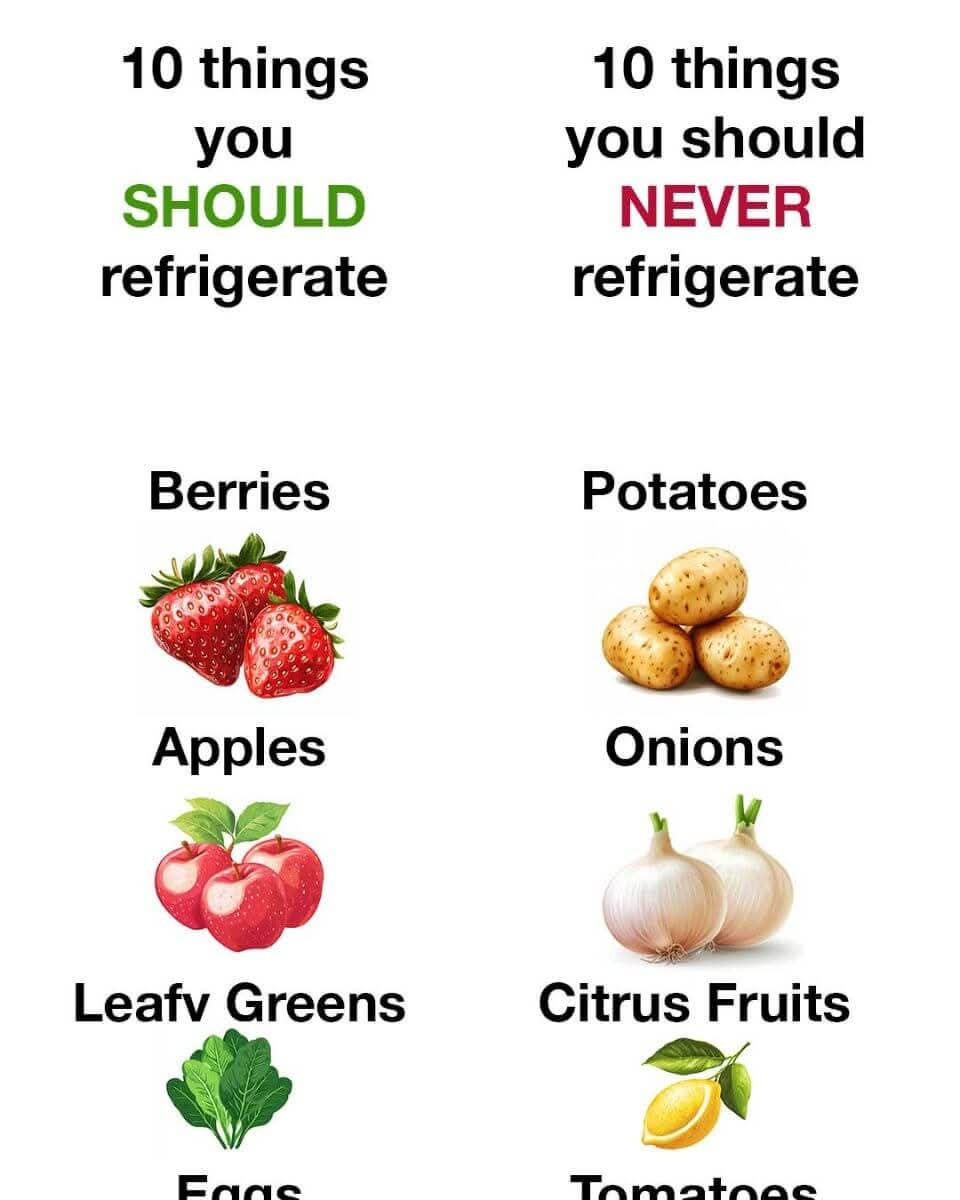10 Things to ALWAYS Refrigerate & 10 Things to NEVER Refrigerate

Keeping your food fresh isn’t just about taste—it’s about safety too! Here’s a simple guide to help you know what should always go in the fridge and what actually does better outside of it.
10 Things You Should ALWAYS Refrigerate
- Milk – Goes bad quickly if left out, even for an hour or two.
- Eggs – Especially in countries where eggs are washed before selling.
- Raw Meat & Seafood – To prevent dangerous bacteria like salmonella.
- Yogurt & Cheese – These dairy items can spoil fast at room temperature.
- Cooked Leftovers – Always chill within 2 hours to keep them safe.
- Butter (in hot climates) – It melts quickly and can go rancid.
- Cut Fruits & Vegetables – Sliced produce needs refrigeration to stay fresh.
- Fresh Berries – Mold can grow fast if they sit out too long.
- Salad Greens – They wilt quickly without cool temps.
- Opened Sauces (like ketchup, mayo) – They stay safe longer when chilled.
10 Things You Should NEVER Refrigerate
- Tomatoes – Cold temperatures ruin their texture and flavor.
- Potatoes – The cold turns starch into sugar and changes their taste.
- Onions – They get moldy fast in humid fridge conditions.
- Garlic – Refrigeration can cause sprouting and make it rubbery.
- Bananas – Cold stops the ripening process and turns the peel brown.
- Bread – It dries out and goes stale faster in the fridge.
- Honey – It crystallizes and thickens in cold temperatures.
- Coffee (beans or ground) – Absorbs moisture and odors in the fridge.
- Avocados (unripe) – They won’t ripen properly when cold.
- Hot Sauce – Most varieties are shelf-stable thanks to vinegar and salt.
Quick Tip:
If in doubt, ask yourself: “Would this item be in the fridge at the grocery store?” If yes, refrigerate it. If not, it’s probably safe at room temperature!
Let your fridge do the right work—and save your food from going to waste!






